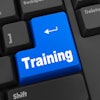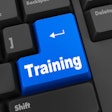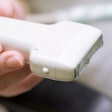
Why do some radiology residents fail the American Board of Radiology (ABR) Core Exam? A new study in the September issue of the American Journal of Roentgenology identified some of the factors that can predict a failing grade on the exam -- an issue that has drawn scrutiny due to the high "fail" rate on the most recent test.
Researchers found that low scores for step 1 and step 2 of the U.S. Medical Licensing Examination (USMLE) and low scores on the American College of Radiology (ACR) in-training examination put residents at risk of failing the Core Exam, according to a team led by Dr. Gary Horn Jr., of the University of Texas Medical Branch at Galveston.
The results suggest that radiology residents need more support to pass the Core Exam, the group wrote (AJR, September 2019, Vol. 213:3, pp. 485-489).
"The primary goal of our radiology residency program is to train residents to become well-educated, independent, and skilled radiologists," Horn and colleagues wrote. "An extremely important secondary goal of our radiology program is to prepare residents to pass the ABR core examination. We believe that these two goals have significant overlap, but we have been unsuccessful in adequately preparing all of our residents to pass the [exam]."
Before 2013, ABR certification was a three-part process that included both an oral and written exam; after that year, however, this format was replaced by the Core Exam, a computer-based exam with multiple-choice questions that resident taken at the end of their third year, and a certifying exam they take 15 months after graduating.
Some have criticized the new format, noting that failure rates have increased. Indeed, in the most recent iteration of the Core Exam, 15.9% of test takers failed, the highest level since new format began in 2013. From 2013 to 2017, 20% of the residents at their program failed the Core Exam on their first attempt, Horn and colleagues noted. The high fail rate has spurred questions as to whether the Core Exam is an accurate measure of the competence of radiology residents.
In the new study, Horn's group sought to determine which, if any, factors could predict examination failure. The team conducted a study that included 30 residents from their institution who took the ABR core examination between 2013 and 2017, tracking data from the following factors:
- USMLE scores for steps 1 and 2
- ACR diagnostic radiology in-training examinations scores
- Number of image interpretations over the course of residency
- Academic degree (doctor of medicine or doctor of osteopathy)
- Status as an American or foreign medical graduate
- Alpha Omega Alpha Honor Medical Society status
Low ACR in-training examination scores for first- and third-year residents were significantly related to ABR Core Exam failure (p = 0.027 and p = 0.035, respectively), as were low USMLE step 1 and 2 scores (p = 0.041 and p = 0.043, respectively).
"Residents with scores of less than 220 on USMLE steps 1 and 2 seemed to be at risk [of failing the ABR Core Exam]," the group wrote.
The team did not find significant associations between ABR Core Exam failure and the class in which the resident graduated, American or foreign medical graduate status, or Alpha Omega Alpha status. Nor was there an association between pass rates and the number of exams a resident read.
Identifying the factors that may predict ABR Core Exam failure can help programs better support their residents, according to the researchers.
"Low scores on USMLE steps 1 and 2 and first- and third-year ACR in-training examinations were associated with ABR core examination failure," the group concluded. "If validated more broadly, these cutoffs may serve as predictors of ABR core examination failure and may facilitate identification and remediation of at-risk residents."




















